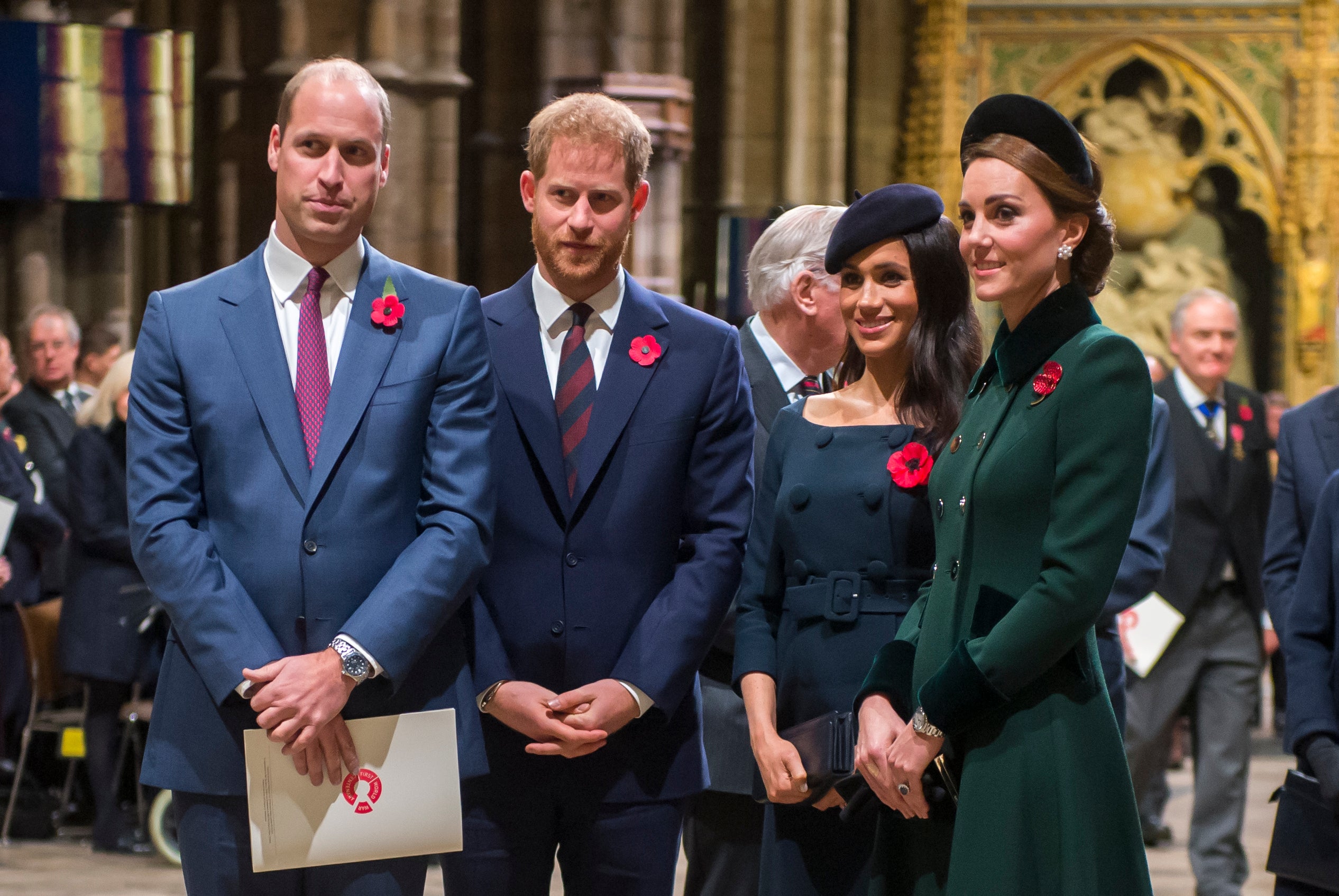The Independent's journalism is supported by our readers. When you purchase through links on our site, we may earn commission.
JR Moehringer grew up with a love of The Prince and the Pauper. Now he’s written Prince Harry’s memoir
Prince Harry’s ghostwriter, JR Moehringer, is a Pulitzer Prize-winning feature writer whose own memoir about his absent father was adapted into a George Clooney-directed film. Now he’s turned his hand to ferreting out the most intimate details of royal life and familial intrigue, writes Sheila Flynn

The two boys grew up 20 years and almost 3,500 miles apart, both navigating parental dysfunction, both floundering to find their places in vastly different worlds. One was a prince; one was far closer to the pauper end of the spectrum. They would both be fathers themselves by the time their professional paths crossed.
When it happened, however improbably, the teaming of ghostwriter JR Moehringer with the Duke of Sussex would lead to one of the most explosive memoirs in living memory. Prince Harry bares his soul, controversially, in the tell-all Spare, but it was Moehringer who put the royal’s story down on paper.
The New York native was perfectly placed to do it; not only does he have a Pulitzer Prize for feature writing, but he’d also published a deeply personal autobiography, The Tender Bar, about his own family 18 years beforehand. Moehringer was rumoured to have been introduced to Prince Harry by George Clooney, who helped turn the ghostwriter’s memoir into a movie by the same name starring Ben Affleck in 2021.
Prince Harry may have grown up in a palace while Moehringer grew up in a “flophouse”, as he calls his crowded grandparents’ home in his 2005 memoir, but the family trauma, yearning for affection and mother-son bond in both men’s youths closely mirror each other.
Moehringer, 58, was raised in Manhasset on Long Island, the son of a former flight attendant and her abusive New York City radio DJ husband, Johnny Michaels, real name John Joseph Moehringer. Months after giving birth to his namesake – nicknamed JR – she left him after he threatened to carve up her face with a razor, the memoirist writes, so his father “retaliated by disappearing and withholding all help”.
The author and his mother, Dorothy, alternately lived with her parents – along with her two adult siblings, five nieces and one nephew, for a total of 12 people – and in a number of apartments on a shoestring budget. Moehringer labels his absent father “The Voice” in his memoir, which chronicles how a series of other male influences stepped in to help him learn how to become a man, particularly his bartender uncle and the other unlikely role models at his tavern of employment.

“My personal list of needs was long,” he writes in The Tender Bar. “An only child abandoned by my father, I needed a family, a home and men. Especially men. I needed men as mentors, heroes, role models, and as a kind of masculine counterweight to my mother, grandmother, aunt and five female cousins with whom I lived. The bar provided me with all the men I needed, and one or two men who were the last thing I needed.”
He often referred to his only male cousin in the house, McGraw, as his brother, and the two shared an obsessive love of sports in the shadow of some of the biggest franchises in the world. They loved the Mets “because we felt like born losers,” Moehringer wrote in 2008.
“Though we were in just the first inning of our lives, we were already down four runs, with a weak bullpen and no bench. Sons of single mothers, living on food stamps, attending so-so schools, wearing ill-fitting clothes, we faced a future that seemed sure to include a heavy dose of failure, ignorance and want.”

McGraw pursued his love of sports professionally and became a news and sport radio host; he currently is a popular radio personality in St Louis. Moehringer, who inherited a love of words from his eccentric grandfather and uncle, became a journalist, first working as a New York Times copyboy before moving in 1990 to the now-defunct Rocky Mountain News in Colorado, where “newspapers still gave off a vague whiff of frontier”, he wrote in 2008. “They had a rawboned looseness, an Old West tolerance for misfits, eccentrics, exiles, losers – and greenhorns. That’s why I fit right in. Not that I could articulate it at the time. I couldn’t articulate much at the time.”
He honed his craft quickly, however, moving four years later to the Los Angeles Times, where his work made him a Pulitzer finalist in 1998 before he won the top prize in 2000 for his feature “Crossing Over”, about the descendants of slaves in Georgia.
His first major foray into writing about his own family was in 2001, after one of his Long Island cousins, Timothy Gerard Byrne, was killed on 9/11 at the World Trade Center. Manhasset, a commuter town, was heavily hit by lives lost.
He returned to Long Island to write Byrne’s obituary for the LA Times, recounting a wedding speech his cousin had given that, after 9/11, struck the family as particularly prophetic and healing. The Byrnes and the rest of Moehringer’s relatives made another literary appearance in 2005 when he published The Tender Bar – and it wasn’t long before a man so taken by Moehringer’s tale about a fatherless child called him up and asked him to write his own story.
That man was Andre Agassi.
“I wanted to see my life through the lens of [a] Pulitzer Prize winner,” the tennis legend told The New York Times in 2009, adding that he sometimes felt like he and his ghostwriter were like “brothers from a different mother”.
Moehringer eventually agreed and threw himself into the project whole hog. He moved to Las Vegas to immerse himself in Agassi’s life and memories, studying Freud, Jung and other psychoanalyst works in an attempt to better understand the inner workings of his subject’s mind.
“Our first few interviews were just painful,” Moehringer told the Times. “He was completely locked – stilted, resistant, halting. His memory was crystalline about matches but not about relationships. He hadn’t reached any conclusions about them and couldn’t make connections.”
The ghostwriter teased out incredibly sensitive admissions – such as the tennis player’s crystal meth use – and wove together Agassi’s life in a narrative that effortlessly explores his life, career and, notably, his relationship with his father.

Moehringer told NPR that his experience writing Agassi’s memoir taught him that “all the research in the world doesn’t get you very far – that when you start telling the story, there’s all this stuff you really don’t know.
“And I had the wonderful perk of being able to call him, sit down with him, every time I came to something and didn’t know what it looked like or smelled like. So it was like writing a novel about an imaginary character, but then being able to call that character and say, ‘What was this like? We forgot to talk about this. Tell me what this person said.’”
He said the trick to ghostwriting a memoir was to “try and inhabit their skin, and even though you’re thinking third person, you’re writing first person” employing the opposite but “simpatico” technique he uses for his own autobiography.
By the time the book was finished, the collaboration had been so intense that Agassi tried to convince Moehringer that his name should be on the book, too. He refused.
“It’s Andre’s memoir, not our memoir, not a memoir ‘as told to,’” he told the Times when Open was released. “It’s his accomplishment, and he made the final choices.”
Moehringer went on to pursue other projects and ghostwrite other memoirs, but landing the contract to work with Prince Harry – reportedly for more than $1m – has launched him into another level of fame.
A few months before the movie adaptation of Moehringer’sThe Tender Bar was released in 2021, Prince Harry announced that he had partnered with Penguin Random House for a forthcoming memoir written “not as the prince I was born but as the man I have become”.
While the royals seem to be freaking out over Prince Harry’s book, Moehringer’s family have been nothing but publicly gracious about The Tender Bar in both book and film format.
“We are a big, loud, opinionated, family, filled with love, and we have vivid and wonderful memories of the people who helped raise us,” his cousin McGraw Milhaven, co-host of The Big 550 KTRS in St Louis, wrote in 2021. “But, when someone reads the book, or now sees the movie, and wants to ask a question or talk about my family, instead of being angry because they didn’t get it right, I love it. I get to talk about the people I loved.”

He continued: “There is a truth about storytelling. The storyteller tells the story. When our family gets together, I’m sure it’s similar to the way you connect with your family. We argue and debate what happened, how it happened, why it happened. We never come to resolution, and we almost never agree. But no matter how much we debate, I often get the feeling that the room is overflowing with pure love.”
That’s not exactly the feeling anyone is getting about how the King and the wider royal clan are reacting to Spare. Even Milhaven, on the day of its release, was less eager to speak about his ghostwriter cousin, citing the media frenzy surrounding the book’s publication.
“We are thrilled for JR, and he’s a great writer,” was all he felt comfortable sharing with The Independent.
Moehringer now lives in the Bay Area with his wife, editor Shannon Welch, and their two children; his beloved mother, Dorothy, passed away in August 2019. He tweeted a passage from his memoir as a tribute to her for his followers, who – until 10 January, the official publication date for Spare – numbered only a few thousand. That number has been creeping up, however, and the ghostwriter has been steadily retweeting his exploding mentions on the site.
He has not publicly commented on Spare throughout Prince Harry’s whirlwind media blitz, but the revelations within the book’s pages – in addition to the royal’s own comments in interviews – hint that Moehringer applied the same psychoanalytic interview style he used to loosen up Agassi.
The Prince and the Pauper was one of Moehringer’s favourite books as a child, he writes in a new afterword for his own memoir. It’s hard to imagine that, starved for fatherly affection in his tumultuous childhood home, he could have ever guessed the title would one day, strangely, reflect a facet of his own life – and that his own relationship with a prince just may have made him a legend.
Join our commenting forum
Join thought-provoking conversations, follow other Independent readers and see their replies
Comments





Bookmark popover
Removed from bookmarks